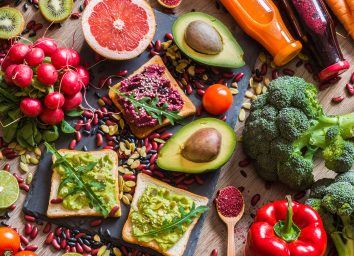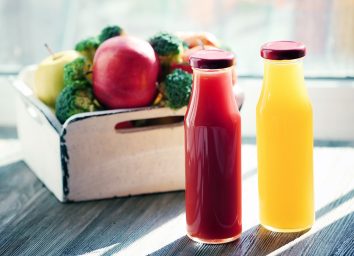Popular Diets Proven To Cause Lasting Damage To Your Body, According To Science

At some point, almost everyone has considered going on a diet for one reason or another. For many, it's to drop a few pounds. For others, it's to "bulk up" while strength training. Though being mindful and conscious about what you eat is a healthy decision, there's a difference between cleaning up your meals and going to an extreme. As many experts will reiterate, diets aren't successful in the long-term, because many people return to their old habits, causing them to gain back weight or lose their gains.
In fact, one of the biggest problems with extreme and fad diets is that they're not sustainable. They require you to change how much and what you eat temporarily, but don't necessarily teach you anything about eating healthier for the long haul, says Dr. Josh Axe, D.N.M., C.N.S, D.C., author and the founder of Ancient Nutrition. More importantly, many popular diets can cause damage to your body, so it's vital to think twice before diving into any of these fads. Here's what you need to know about these current fad diets, and for healthier weight loss tips, be sure to check out our list of 15 Underrated Weight Loss Tips That Actually Work.
The Keto Diet
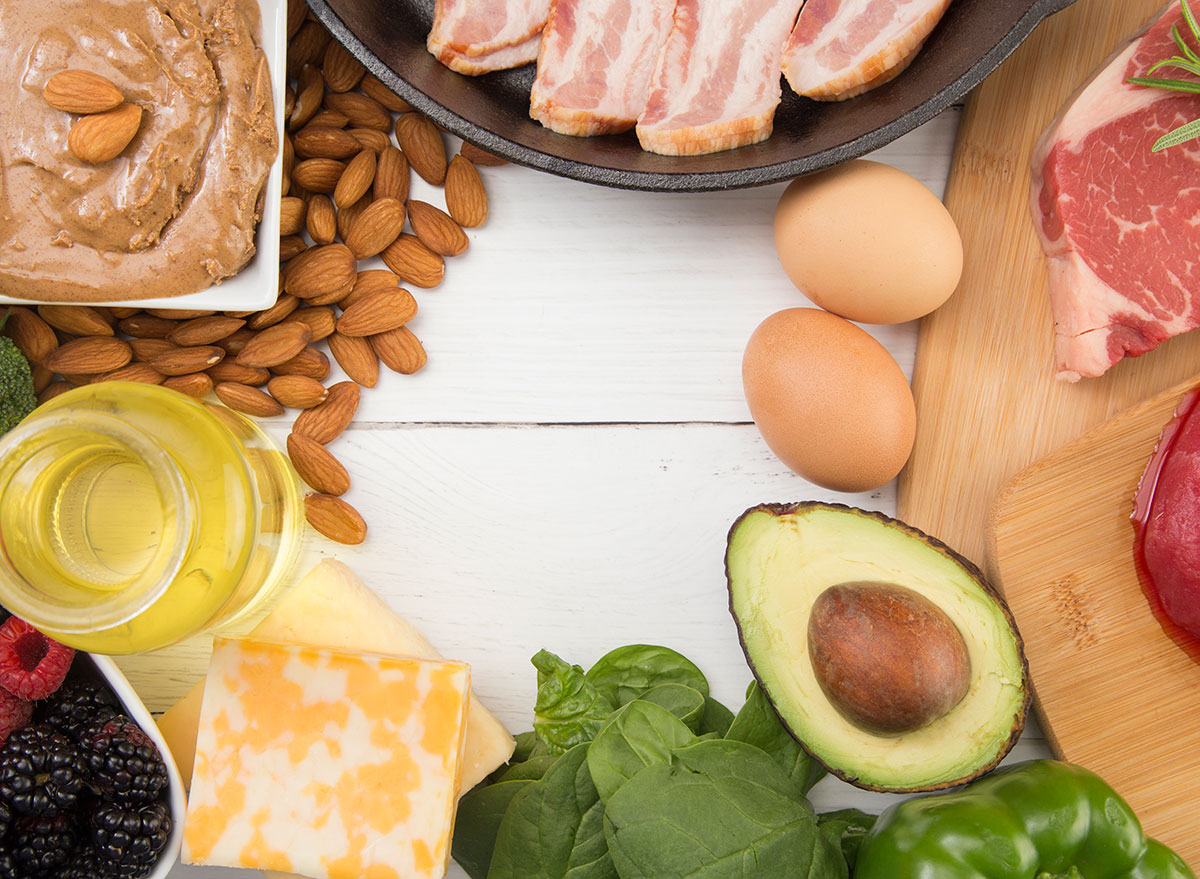
You probably have at least one friend who is an avid keto diet supporter. In this diet, you severely restrict carbs while increasing your fat and protein intake. One of the reasons this approach is so popular is due to the fact you lose a lot of weight very quickly. However, while this study does show the keto diet can be an effective treatment for epilepsy, the long-term effects of the ketogenic diet in the general population are largely unknown, warns Serena Poon, a celebrity chef and nutritionist.
Her main concern with keto is that it tends to force folks to overdose on meat and overlook plant-based foods.
"Vegetables and fruit are important sources of vitamins, minerals, phytonutrients, and antioxidants that truly support optimum health," says Poon. "A diet lacking in these foods can leave you with nutrient deficiencies and without protection against illness."
Plus, she adds that a diet high in red meat and saturated fat has been shown to increase inflammation, which is a precursor to most chronic diseases.
Here's Why You Need Antioxidants In Your Diet—And How To Eat More Of Them.
The Juice/Liquid Cleanse Diet
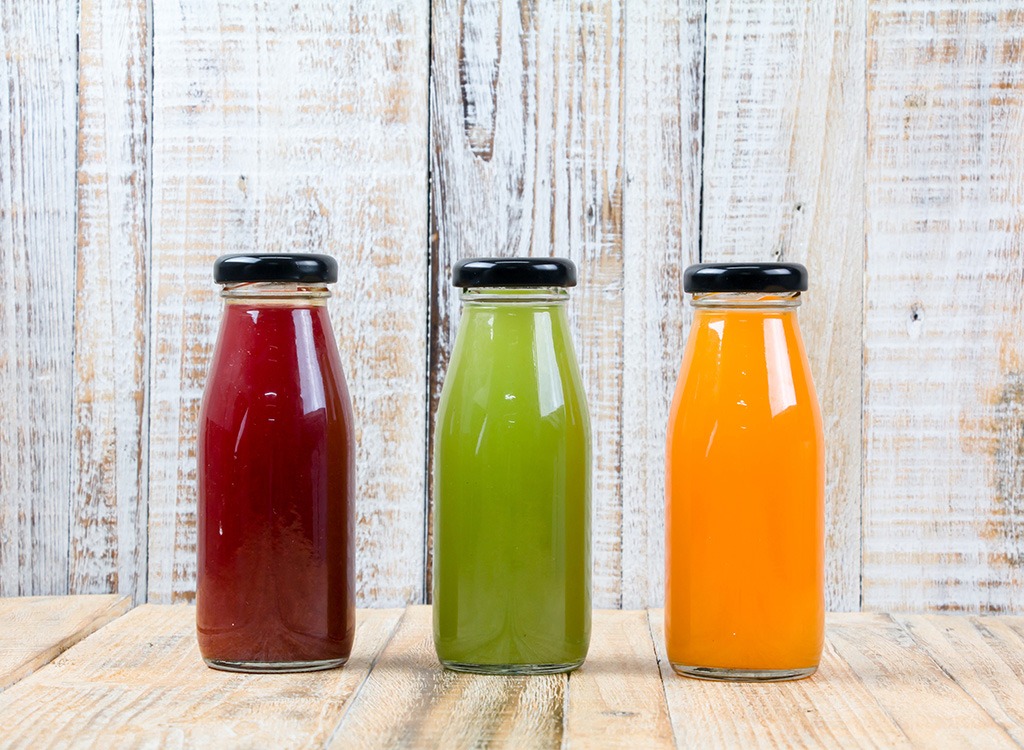
'I'm on a juice cleanse' is a common phrase in sitcoms, particularly when a character is trying to drop a lot of weight in a short period of time.
In reality, this approach to eating isn't sustainable, can be uncomfortable, and isn't good news for your overall health. As Dr. Axe explains, detox-type juice cleanses (like The Master Cleanse or the Cabbage Soup Diet) are typically very restrictive and low in calories, which might be helpful for fast weight loss.
"However, they can also wind up taking a toll on your metabolic rate," he says. "This is obviously the last thing you want when trying to improve your body composition."
Why does this happen? When we don't give our body enough energy via calories, it's forced to go into a metabolic state that many refer to as 'starvation mode.'
"This results in you requiring fewer calories each day just to maintain your weight, which makes weight loss and even long-term maintenance difficult," he says. Plus, you'll also lose muscle mass!
Here are 10 Signs a Juice Cleanse is Bogus.
The Alkaline Diet
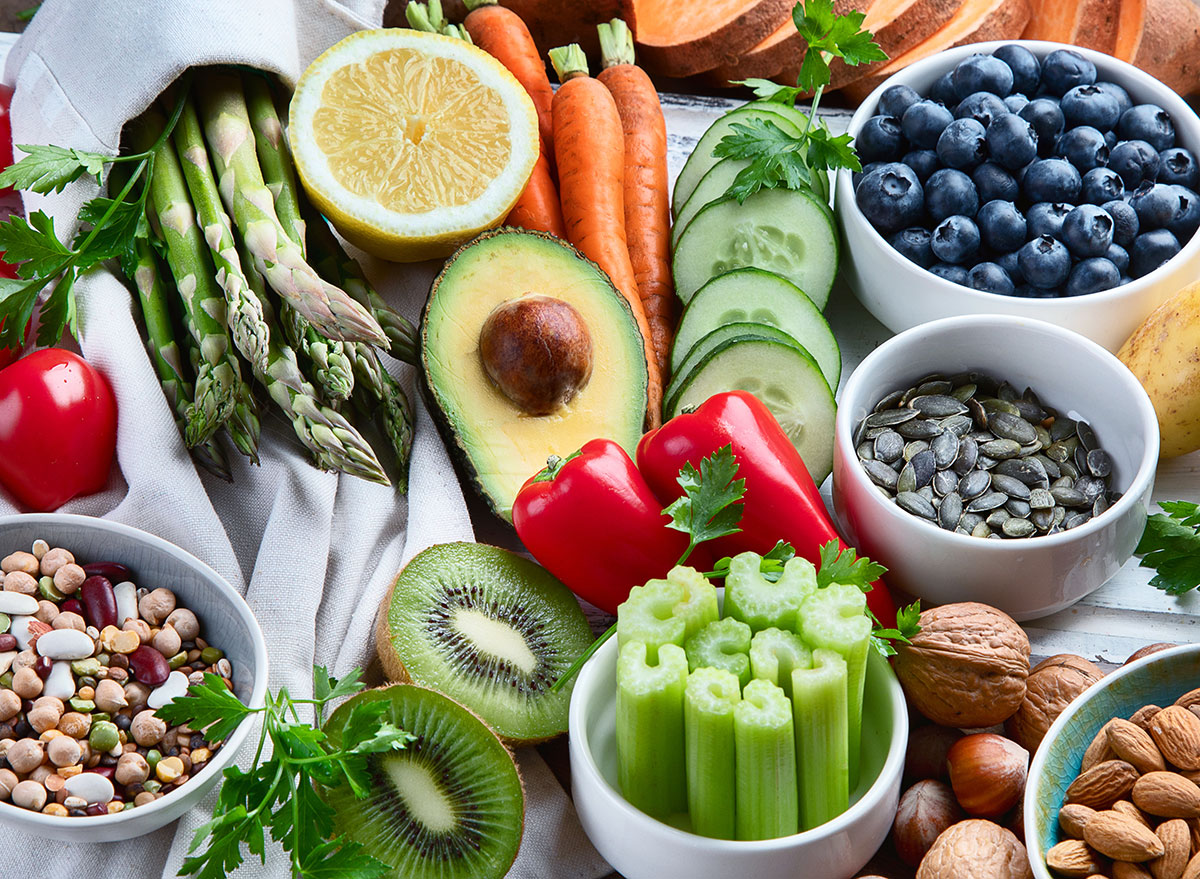
To put it bluntly, Keith Thomas-Ayoob, EdD, RD, FAND, calls this diet ridiculous. With this eating approach, you reduce acidic foods, which claims to lead to poor health. Instead, you fill your meals with alkaline foods, which are said to help your body balance its pH and be beneficial. But as Thomas-Ayoob says, there's little credible science to back this up, and our body is well-equipped to handle acid-alkaline balancing and its pH. And our diet has little impact on this function.
"This diet removes many nutritious foods, including fish, whole grains, and dairy, all of which contain nutrients that are difficult to obtain in other food groups," he says. "It's pretty low in omega-3 fats for instance, as fatty fish (and nearly all fish) are prohibited, as are nuts like walnuts, which also contain omega-3 fat."
This is dangerous since omitting good sources of omega-3s is not ideal for promoting optimal heart health. Plus, Thomas-Ayoob says minimizing dairy foods is a great way to limit your ability to get enough calcium, a nutrient of concern because most people fall short of getting enough calcium.
Get even more healthy tips straight to your inbox by signing up for our newsletter!
The Processed Vegan Diet
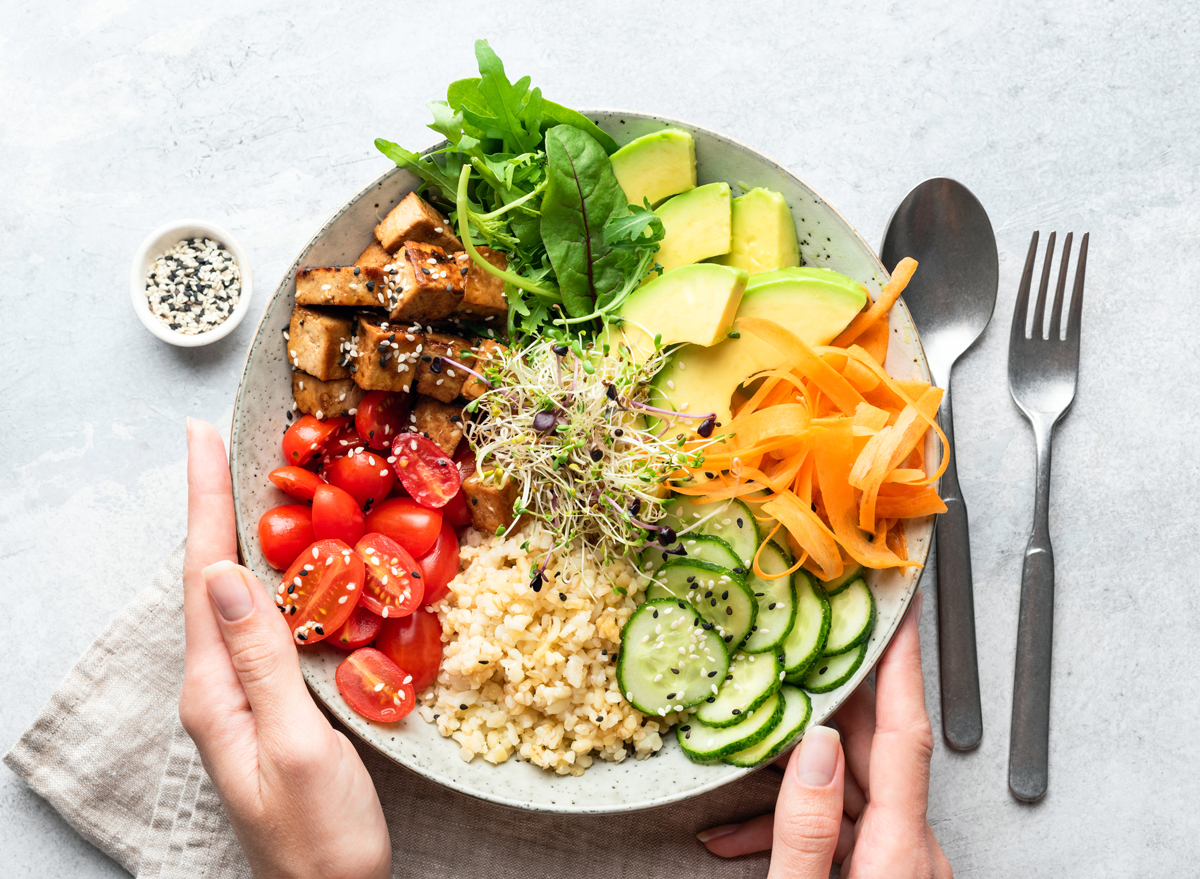
First things first: Poon says a purely plant-based diet can support optimal health. However, going from a meat-eater to a vegan will require some essential shifts and the right food choices. As Poon says, all too often, she says people will 'go vegan' but then fill their diet with mostly meat substitutes, like vegan packaged and fast foods.
"These are still processed foods, and while they may possibly be nominally better than a mainstream brand, they are generally not health-supportive foods," she says. "Many packaged foods contain processed ingredients, such as refined grains, added sugar, and oils that can lead to inflammation, which is a precursor to most diseases."
If you choose to go plant-based, Poon focuses on eating an array of wholesome plants and supplementing any vitamins and minerals that your diet might lack.
The Snake Diet

Nope, you're not eating reptiles on this diet. However, it'll probably still creep you out. As Dr. Axe explains, this approach involves eating one giant meal every other day—and nothing else. It's meant to result in rapid weight loss via prolonged fasting. There are several stages to the diet, the first one which involves having only about 3,500 calories per week, which is far fewer than the average adult needs.
"It fails to emphasize the importance of nutritional quality and that it's hard to put into practice if you're someone who likes to eat meals socially with others," he says. "Fasting can also be difficult for some people, leading to issues like brain fog, mood swings, and trouble sleeping."
The Military Diet

Just like it sounds, the Military Diet is very regimented and repetitive. As Dr. Axe explains, this approach typically involves eating the same several foods repeatedly while sticking to a deficient calorie intake. This could be only consuming 800 to 1,100 calories several days per week.
"Meals included in this diet are somewhat unusual and not necessarily the most nutritious, made up of foods including cottage cheese, eggs, saltine crackers, and ice cream," he says.
Supporters of this diet claim that you can lose up to '10 pounds in less than one week.'
"But remember that just because the number on the scale might drop while doing such a diet, this doesn't mean your body composition or health are actually improving," he says. "A reduction in body fat may be associated with improvements in markers like insulin sensitivity, but weight loss alone might mean you're losing mass from other areas that you don't want to be including muscle mass."
Additionally, when you don't eat enough, it negatively impacts your brain and your ability to focus, remember things, and be creative.
"You're more likely to feel fatigued, sluggish, and foggy if you're not properly fueled, and you may even find that you get sick more easily since the stress of dieting can take a toll on your immune system," he says.
The HCG Diet

Here's the deal: the HCG diet involves taking the HCG hormone in an effort to drop a pound. This is the hormone that is produced in the body during pregnancy and is usually only given via prescription for infertility.
Though most experts warn against the HCG diet, Poon says some people still try it because of the promise of speedy weight loss. Not only is it dangerous to take HCG (unless your doctor prescribes it to you), it is also both problematic and harmful to restrict calories so much.
On this diet, Poon explains you eat only 500 calories per day. Yep, that's right: 500!
"You might lose weight quickly mostly due to calorie restriction, but you might also experience symptoms such as fatigue, depression, blood clots, irregular heartbeat, and vitamin deficiency or electrolyte imbalance," she says. "The risks definitely outweigh the benefits with this one. I would avoid this diet no matter what."
Along with these diets, you may want to read up on our list of The Unhealthiest Diets of 2020, According to Experts.
